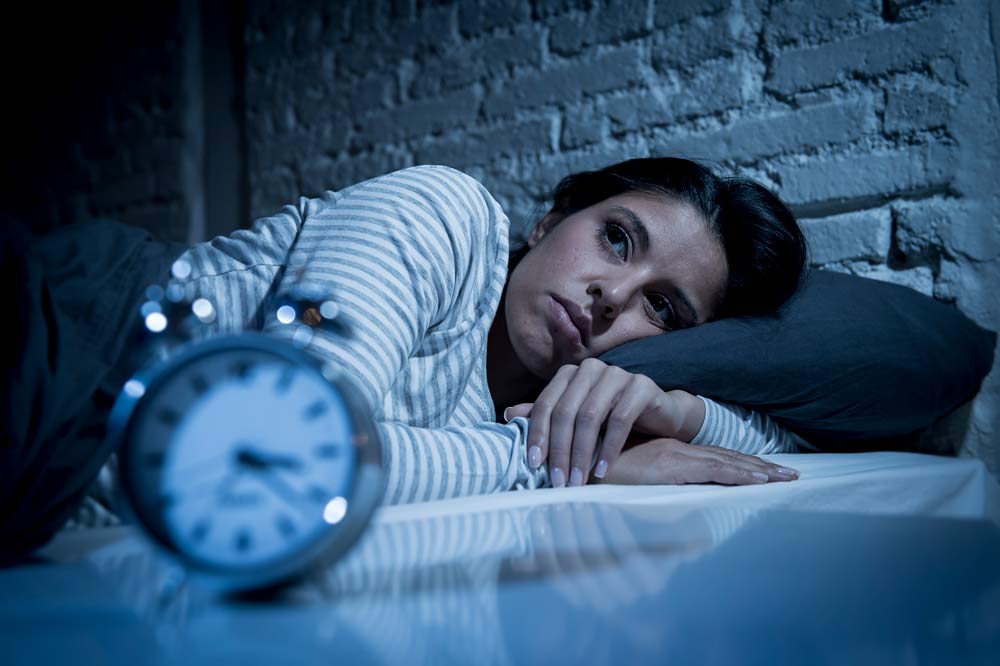
We all know how good it feels to hit the sheets without setting an alarm. Sleeping in on the weekends or vacation can feel like a necessary indulgence, but new research highlights the potential downfalls of a lie-in. A recent study from King’s College London, published in the European Journal of Nutrition (1), found a link between irregular sleep schedules and harmful gut bacteria.
Waking up early on weekdays and then sleeping in on weekends is often referred to as “social jetlag.” Whether it’s because we stayed out late or we’re just relishing a few extra hours of shut eye, variations to sleep schedules are very common. But while it may seem like no big deal, researchers say social jetlag can negatively impact the gut microbiome.
More Details on the Gut Health Study
The King’s College London study compared blood, stool, gut bacteria, and glucose samples from a cohort of nearly 1,000 healthy, lean adults. In general the individuals logged at least 7 hours of sleep per night though some had regular wake times, while others did not. The study also measured the individual’s sleep mid-point, which is halfway between when they fell asleep and when they woke up. For example, 1 a.m. would be the mid-point for an individual who fell asleep at 10 p.m. and woke up at 6 a.m. Researchers found that when the sleep mid-point deviated 90+ minutes from the usual time, there were differences in gut bacteria.
The study’s first author, Kate Bermingham, PhD, remarked that, “Even a 90-minute difference in the mid-point of sleep can encourage microbiota species which have unfavourable associations with your health.” (1) According to the news release for the study, “The composition of the microbes in your gut (microbiome) may negatively or positively affect your health by producing toxins or beneficial metabolites. Specific species of microbes can correspond to an individual’s risk of long-term health conditions such as diabetes, heart disease and obesity.”
The social jet lag group had increased levels of six different types of microbiota species; and half of those are associated with negative health characteristics such as inflammation, obesity, and increased cardiovascular risk.
What Do Objective Experts Think?
Carol-Ann Robert, a registered dietician based in Halifax Nova Scotia, confirms that “circadian rhythms regulate intestinal motility, which is the movement of food and waste through the digestive system.” She adds that “irregular sleep schedules can disrupt these rhythms, potentially leading to inadequate intestinal motility, constipation or diarrhea issues, and digestion disturbances. Research shows circadian disruptions can also alter microbial species composition in the gut. Beneficial bacteria might decrease, while potentially harmful ones could thrive in response to this altered environment.”
Social jet lag can also lead to poor nutritional choices; think staying out late at the bar or indulging in a heavy brunch the next day. Despite the latest study, there’s still a lot we don’t yet know. Robert cautions, “It’s important to note that research in this field is evolving. While evidence suggests a link between irregular sleep schedules and the gut microbiome, further studies are needed to fully comprehend these mechanisms and implications.”
Dr. Colleen Cutcliffe, who holds a doctorate in Biochemistry and Molecular Biology, agrees that the mechanism of how sleep affects overall health needs more attention. She says, “This is really interesting research that adds to the growing body of evidence that our microbiome influences our sleep and our sleep also influences our microbiome. This science is still in its early stages, but important to keep investigating as poor sleep is an increasing problem for many, including women going through menopause.”
While an occasional late night or early morning is likely no big deal, a consistent sleep routine does seem to offer health benefits. To support a balanced gut microbiome and overall well being, Robert advises individuals to maintain regular sleep schedules and adopt healthy habits like a balanced diet and regular exercise.

The Connection Between Sleep and Gut Health

Types of Insomnia — Causes and Treatments

The Benefits of Napping

A Guide to Sleep and Heart Health
Sources
1. King’s College London, “Irregular sleep patterns associated with harmful gut bacteria,” https://www.kcl.ac.uk/news/irregular-sleep-patterns-harmful-gut-bacteria; August 2, 2024.
Robert, Carol-Ann. Author interview. August 2024.
Cutcliffe, Colleen. Author interview. August 2024.



























